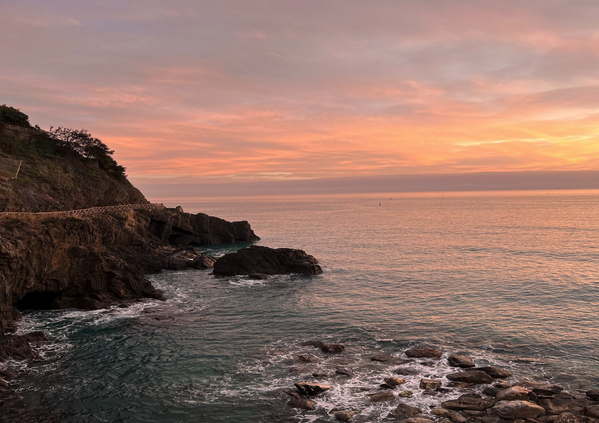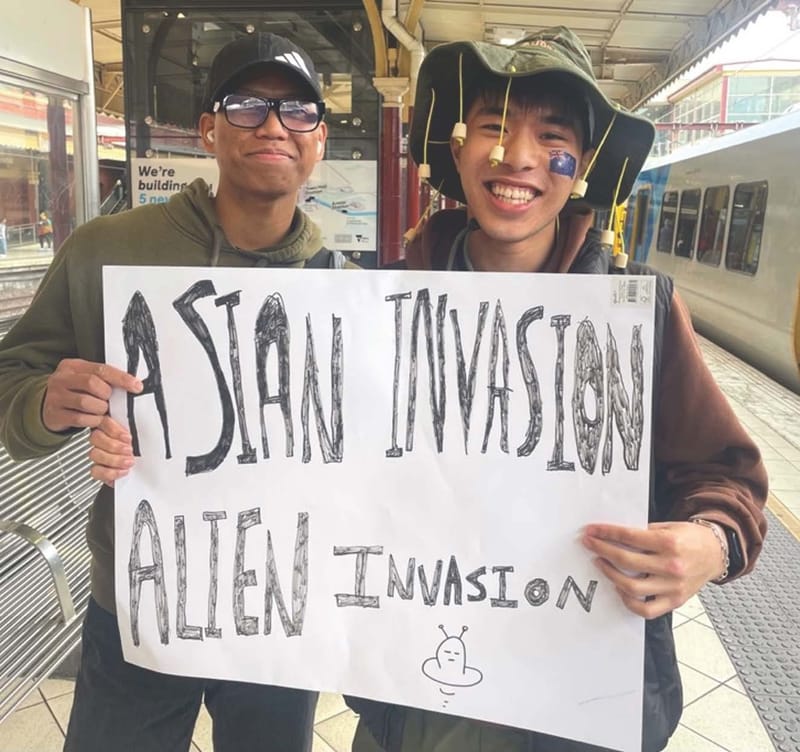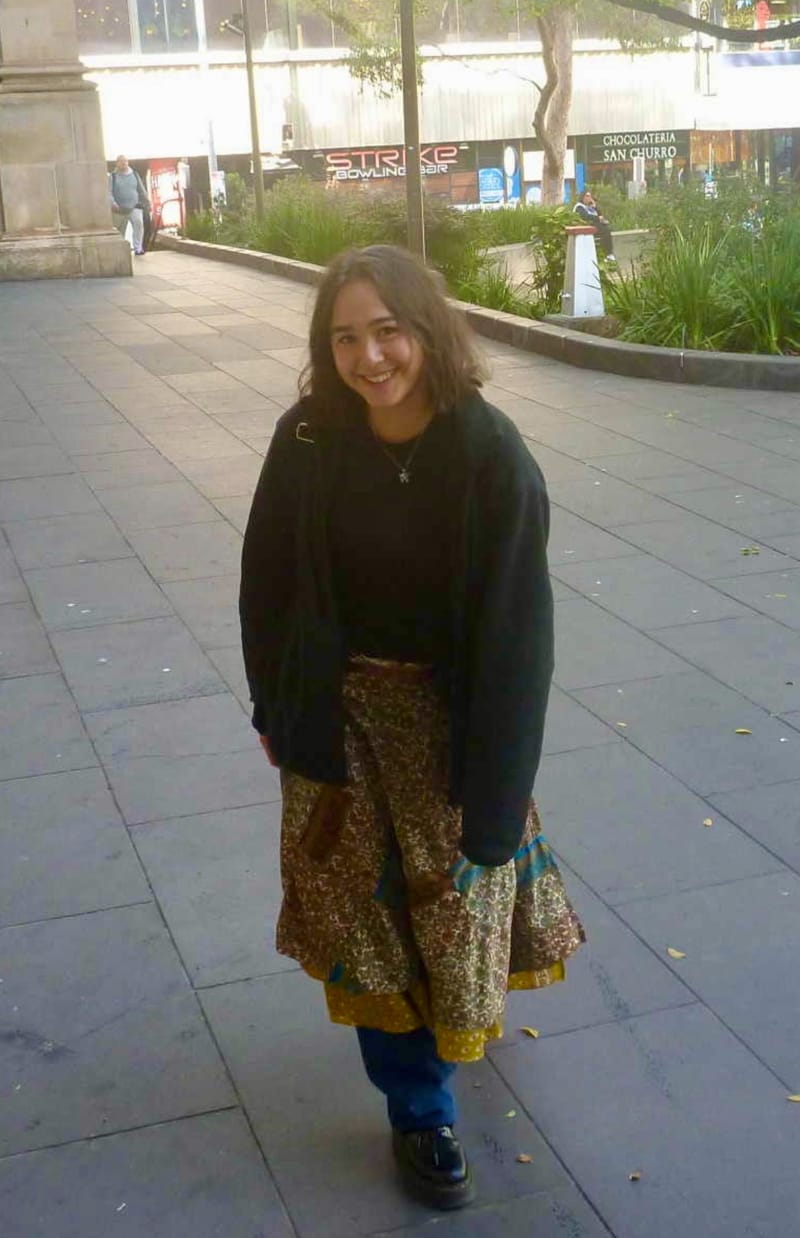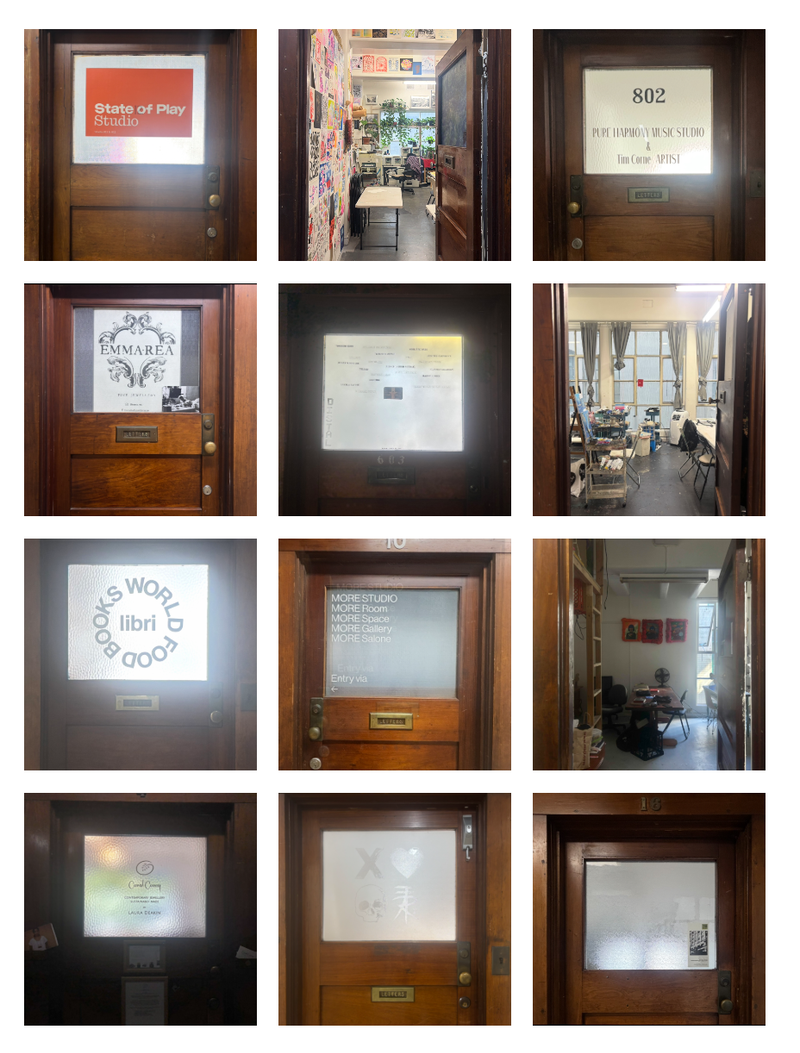The art of (re)making a community in Melbourne
Young Arabs in Australia are building their own cultural infrastructure outside mainstream institutions.
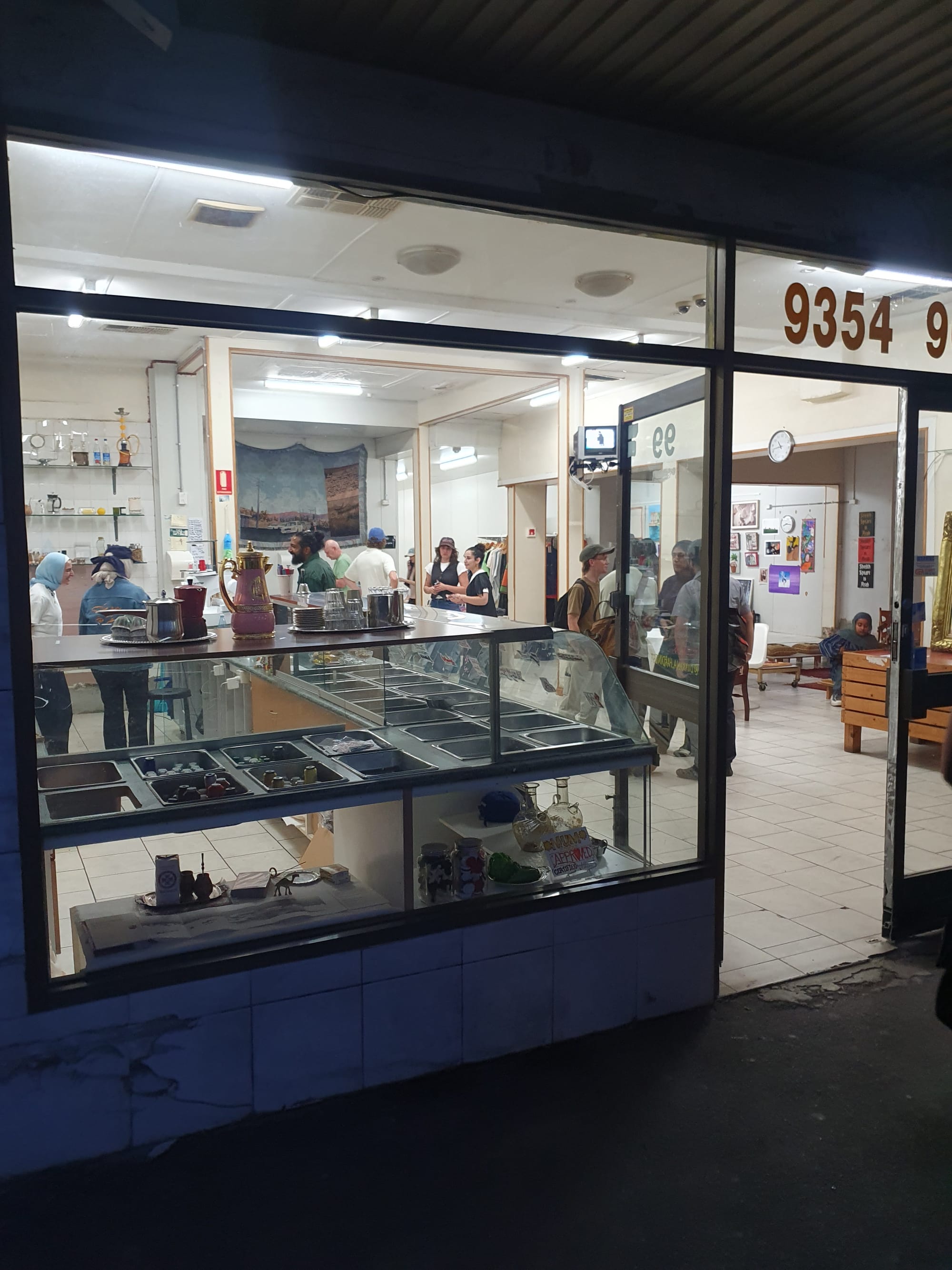
In a small, sun-drenched shopfront on Harding Street, Coburg, Melbourne, the smell of cinnamon and black tea lingers in the air. A clock stuck in time. Shelves cradling a living and growing archive of Arab literature and artefacts. An old nut bar adorned in fabric and embroidery.
What was once Hasoon’s, a beloved Middle Eastern grocery store, has become a cultural refuge, now called Dukkana, a play on words from the Arabic word for shop, an ode to its past, revealing a linguistic inheritance, its soul, a quiet act of rebellion.
It is the hand-painted banner near the entrance that draws the eyes first, draped against cracked marble-patterned tiles where the words of Chelsea Kwakye are scrawled boldly:
“As a minority in a predominantly white space, to take up space is itself an act of resistance.”
These words are not simply a slogan, but a living ethos where occupying space becomes both an inheritance and an act of resistance.
Across Melbourne, in repurposed storefronts and borrowed rooms, a quiet revolution is taking shape. Young Arabs in Australia, often first or second-generation immigrants, are building their own cultural infrastructure outside mainstream institutions.
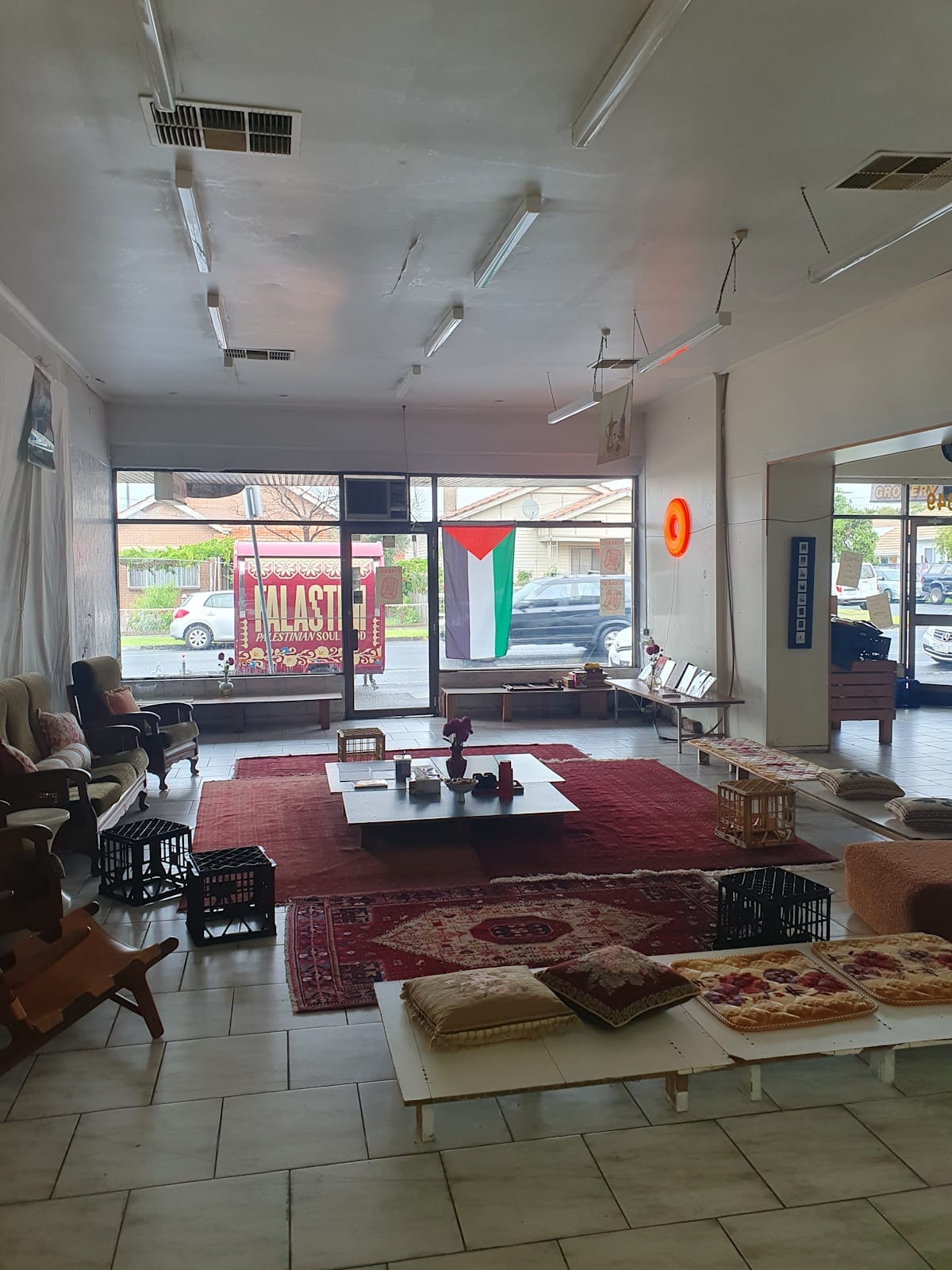
They are crafting what sociologist Dr Sherene Idriss calls “third spaces,” borrowing from postcolonial theorist Homi K. Bhabha’s concept of the in-between, where new hybrid identities emerge through cultural exchange and negotiation.
“Arab Australian artists have become more entrepreneurial,” Idriss says, “creating their own practices and explicitly anti-colonial and anti-racist spaces.” These spaces, Idriss argues, reflect a generational shift.
"The older generation see ethnicity, identity, culture, and religion as private matters,” Idriss explains.
“What I see with the younger generation is the sense that they were raised on multiculturalism and they were told to celebrate their diversity. And so now as adults, as young adults are wrestling with, okay, what does it mean to celebrate my diversity?”
Arab migration to Australia stretches back more than a century, arriving in distinct waves that have shaped the country’s social and cultural fabric. The earliest arrivals, often called “Syrian” migrants, came from what is now Lebanon, Palestine, and Syria in the late nineteenth and early twentieth centuries, driven largely by economic hardship and the collapse of Ottoman trade routes.
A second wave followed around the Second World War, as migration restrictions eased and family networks expanded. The most significant movement came during and after the Lebanese Civil War of the 1970s and ’80s, when thousands of families resettled in Melbourne’s northern suburbs, where small groceries and milk bars became a livelihood and an anchor for these new communities.
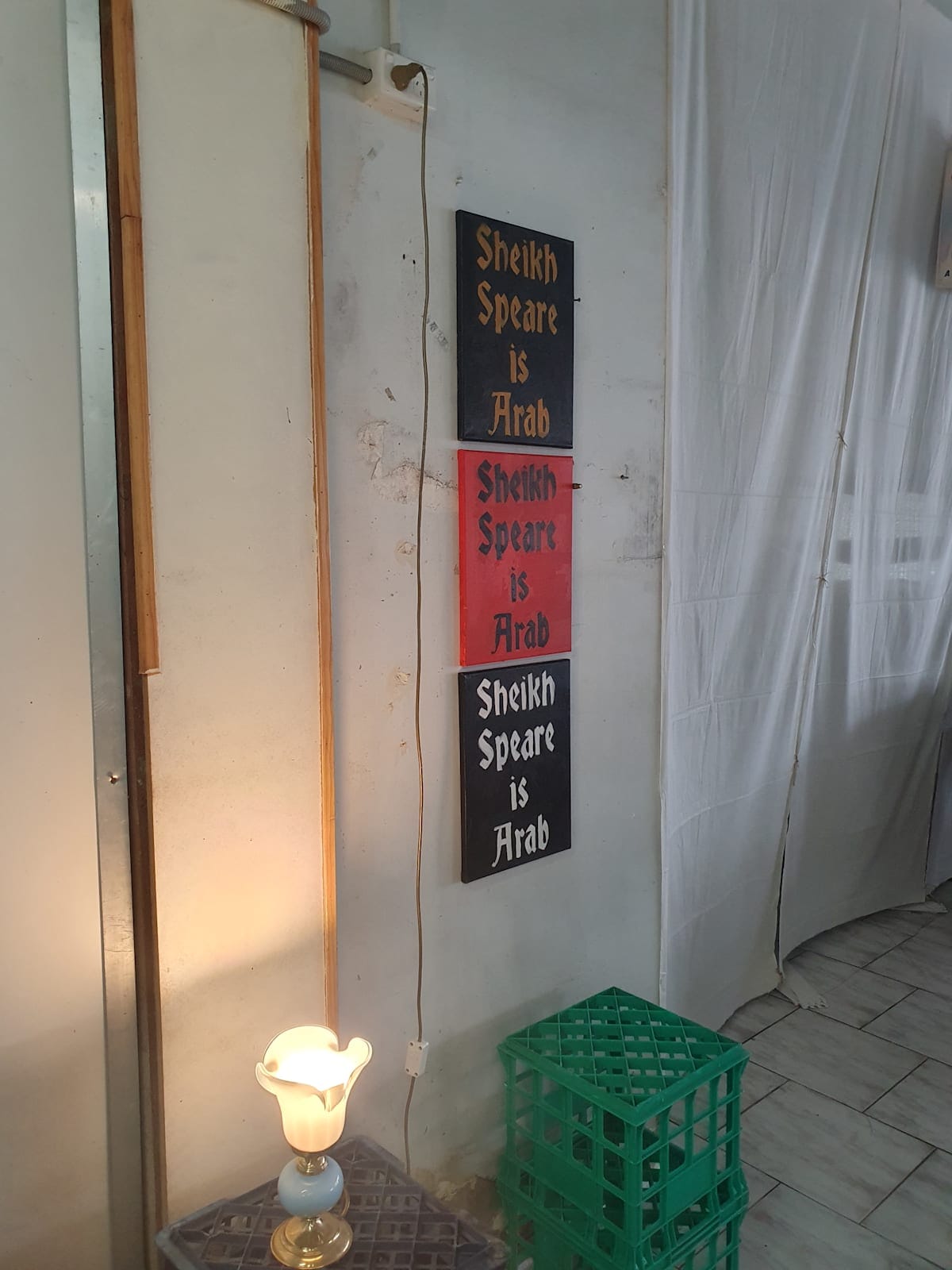
More recent arrivals from Iraq, Syria, and Palestine have added new textures, faiths, and dialects to this mosaic. Out of these layered migrations, a distinct Arab-Australian identity has emerged, one that continues to quietly reimagine what home can mean. Yet for decades, Arab Australians have rarely seen themselves reflected authentically in public life.
It is within this lineage that sisters Fatima and Safa El Samad inherited the bones of their father’s beloved grocery store and turned it into an intimate cultural sanctuary where Arab Australian identity can stretch, settle and defy the tidy boxes it has long been squeezed into.
“This space literally looks like a living room,” Safa says. “We’re always giving things out and offering the space for as little as possible, often for free.”
Here, identity is neither archived nor assimilated but continually remade. Concepts like Dukkana challenge the comforting myth that multiculturalism simply works. They reveal that belonging isn’t granted, it’s built, tended to, and fiercely protected.
It’s Arab hospitality
If Dukkana is a living room, Tatli is a love letter wrapped in cellophane.
Founded by Noor Hoblos, Tatli, in another corner of the city, reimagines what cultural programming can feel like.
"Tatli is a celebration of cuteness," she says. "The events are meant to be sweet and inviting." Noor screens Arabic films, sometimes revolutionary, sometimes romantic, and pairs them with Arabic desserts.
The act is almost devotional. A film about a crumbling pink house dividing a community is served with pink Sahlab. The floral aroma of the creamy milky drink adds a sensory layer to the experience, blurring the line between screen and audience, between memory and taste.
Tatli redefines art as tangible and close, not distant or rarefied, but held it is something you hold between your hands. Noor refuses to let art belong only to the fluent or the fashionable. "I wanted the guy in the Adidas tracksuit to know we had a space program."
Her playful approach to cultural programming creates accessibility while honouring tradition. Everything here is meant to be touched, tasted, taken home.
Belonging tastes sweet but carries weight. The screenings are family-friendly and intentionally accessible to those excluded from Melbourne’s creative scene.
“I felt like a lot of the creative events that I was attending for the Arab diaspora were in bars or clubs so I couldn’t really invite my family or recommend someone from my local community to go,” Noor says. “I wanted to create something I could invite my family to.”
Like Dukanna, Tatli turns away from the institutional gaze to face its own community. These third spaces are more than creative outlets, they are quiet acts of redefinition. Here, identity is not something to be explained or performed for approval.
It simply is.
The rhythm of community
Between the shelves and sofas, people linger after poetry readings or film nights, the rhythm of community hums beneath the chatter. A soft insistence that presence itself is enough.
Their creative space is about reclaiming and reshaping narratives, about rejecting media caricatures and internalised shame. But also, an invitation to a deeper, more expansive conversation about identity and belonging.
“Growing up post-9/11, what it meant to be Arab was so often dictated by media representations. As a young Arab in Australia, it was hard not to internalise how Arabs were portrayed," Safa says.
"This shop is a testament to embracing who I am wanting to not only show it," she says of Dukanna, "but to invite people in and say, this is who we are.”
Arab identity in Melbourne is not archived, it breathes.
The sisters don’t claim to represent every Arab experience. Instead, they create space for others to experiment with memory, tradition, and presence. “Belonging,” Fatima says, “is something you cultivate with community.”
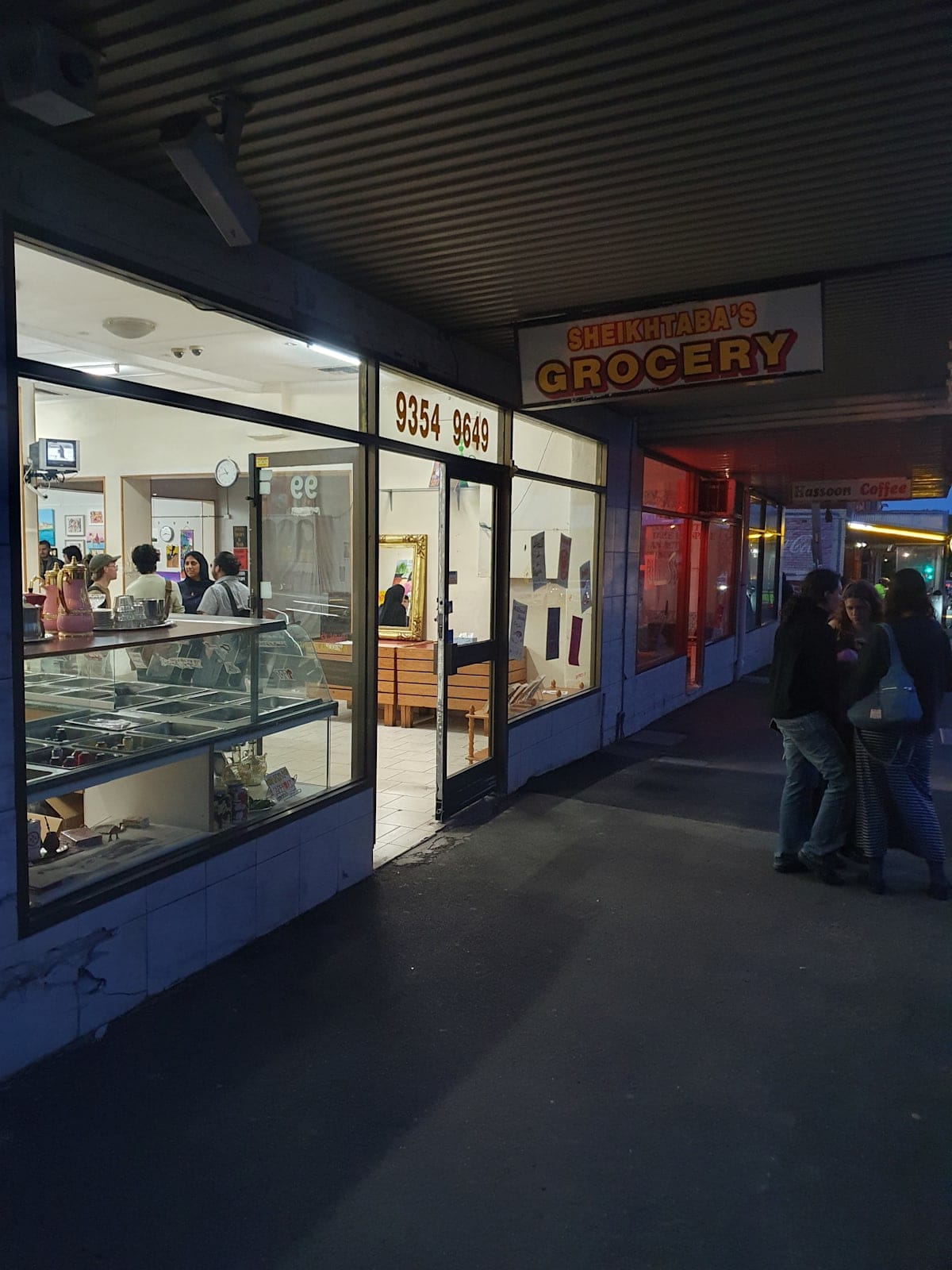
In this new context, spaces like Dukkana and Tatli are not just creative projects but a declaration of presence. Identity here unfolds without explanation or apology. expressed freely, not in whispers, but in bold, unashamed declarations.
For many, it means refusing to perform palatability.
In doing so, they remind us that Arab identity in Melbourne is not a fixed thing. It is not a passport or a perfect accent. It is a garden, sometimes overgrown, other times, carefully tended. It grows in conversation, in the stories we inherit and reshape, in the spaces we insist on making for each other.
Through stitched embroidery, spilled tea and cinema, they remember. Not in spite of history, but because of it.
"You are always welcome here," Safa says. "Even if it's not the physical space, there's people around you who care about you."
And that may be the most radical act of all, not to wait for acceptance, but to live, tenderly and unapologetically, as if you already belong. In a country still learning how to listen, perhaps the most powerful form of resistance is to whisper, we are still here.
Not because they allowed you, but because you always belonged.
The tea is warm. The dice is ready. The door is open.
Back on Harding Street, the clock in Dukkana remains frozen, not marking time, but presence.


